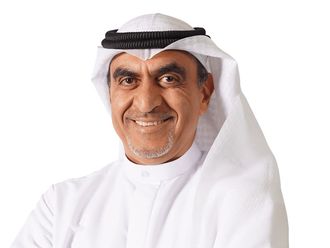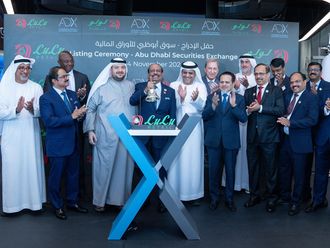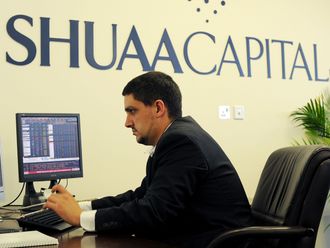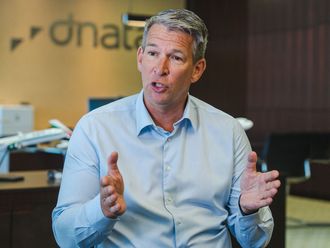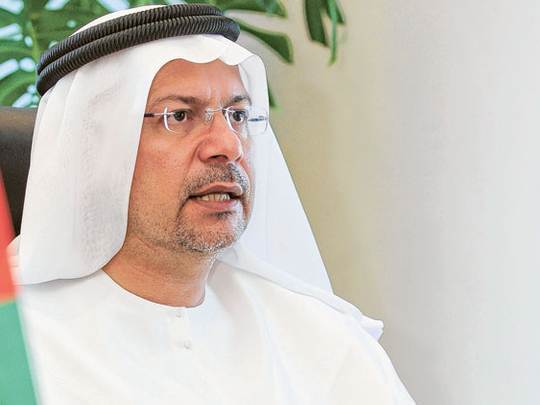
Dubai: Noor Islamic Bank, the new-generation Sharia-compliant bank, sees big growth opportunities for the Noor brand within the UAE and the region in the long term. In the aftermath of the financial crisis the group has put on hold some of its ambitions regional expansion plans, but the group sees it only as a temporary setback and is determined to work on its vision of creating a universal Islamic banking group that will have businesses ranging from Islamic financing, takaful, investment banking and financial services outsourcing business.
After completing three years in operation, Noor Islamic Bank expects to break even in 2012. For the year 2011, the bank expects a 25 per cent balance sheet growth largely driven by corporate finance, structured deals, financing syndications and mortgages. The bank is back in the mortgage market and expects healthy growth in that segment of business. In a recent interview with Gulf News, Hussain Al Qemzi, CEO of Noor Islamic Bank, spoke about the challenges the Noor Group and the banking industry in the country face in the wake of the global financial crisis.
Gulf News: When Noor was started the original plan was to create some kind of a universal Islamic bank anchored in Dubai but with a pan regional plan. How far are you sticking to the original plan or has the financial crisis altered some of it?
Hussain Al Qemzi: I think the most important thing in our strategy was to create a very strong and well recognised brand in the Islamic banking worldwide and that is still our objective. When we started the process it was a different time.
After the launch of the bank it was later in 2008 the crisis started and the markets changed. As a result we decided to be cautious as the changes were rapid and so much uncertain that we decided to refocus our efforts on the UAE market and focus internally in order to regroup and make sure our value propositions and our services and business continue to survive and thrive during the crisis. We should remember that we are a new bank.We continue to consolidate our network here. Even in the middle of the crisis we launched a Takaful (Islamic insurance) company to compliment the services we already offer. We continue our efforts to guide the company towards break even and sustained profitability. We expect to break even in 2012, as per our original schedule.
Do you mean to say whatever changes you made to the original plan during the financial crisis are temporary and as the economy and markets improve you will go ahead with your original plan?
We will continue our efforts to stick to the original plan. I think today we have a very strongly recognised brand name and presence in the world of Islamic finance. We will continue to consolidate these advantages.
Even without branching out internationally we have been engaging in some international deals in Turkey and in the GCC, which emphasizes the role and ambitions of the bank.
Noor as a financial services group had plans to get into investment banking and services such as pan regional financial services outsourcing. What is happening to those plans? I remember you had announced plans to start a joint venture outsourcing company in association with an Indian firm. Is the project still on?
We established an outsourcing company which we use to a certain extent. However, the partnership with the Indian company did not realise. We are going to look at these opportunities again. But many of these projects are on hold because of the impact of the financial crisis and it was very difficult to raise capital for these projects during the crisis.
You have put on hold most of your regional expansion plans. However you already have some regional presence, Tunisia for example. Are you continuing these operations?
We still have our representative office in Tunisia, but we do not have a physical branch presence there. All such plans have been put on hold until the overall economic conditions improve. Currently our main focus is the UAE market, but we will continue to monitor other regional markets and as it improves that will be the time to revisit these plans.
Do you think the financial crisis has made you more retail focused?
No. In fact retail has always been one of our long term goals. We continue to invest in retail as part of our long term plan, but we remain by and large a corporate bank, mostly funding companies and infrastructure projects.
There is a widely held perception that Noor is primarily a government focused bank and most of its exposure is to government or government related entities. How do you react to this comment?
I consider that as very positive. Maybe people are seeing it as something negative because of the sovereign debt issues faced by governments all over the world. But as far as Noor is concerned I still think it is a good business and it is a very good long term investment. These are good assets we should keep and from our perspective we will continue to support government.
Going forward will you look at expanding your reach to the private sector, particularly the small and medium enterprises?
We are already very much present in the private sector with special focus on the small and medium companies. It is not like we are exclusively focusing on government and government related assets. But as far as the government sector is concerned our view is that it is a good business segment and we will continue to be very active there.
Islamic banks in general have very high capital adequacy ratios and they have emerged stronger from the crisis, probably because their financing exposures are backed by real assets. What are your views?
Islamic banks have emerged better off than the conventional banks because of their asset based financing model. When the crisis happened it was proved that even if you are better off with this model you are not immune to what happened to the whole system because Islamic banks are also part of the system.
One of the major issues faced by Islamic banks during and after the crisis relates to the decline in the value of real assets against which they did financing. In fact, you were an aggressive player in mortgages how are you dealing with the decline in asset values?
We have no way but make adequate provisions against these value erosions. We have been very realistic in making these provisions.
Although the real estate sector has been impacted by the crisis which represents about 25 per cent of our economy, we are seeing other segments of the economy such as retail, trading, tourism and hospitality recovering fast. We expect recovery to begin in the real estate sector from 2012. In the current market, I think there are very good opportunities for serious home buyers.
Additionally, the drop in the real estate market has not been all that bad as it has reduced the cost of living in the country.




